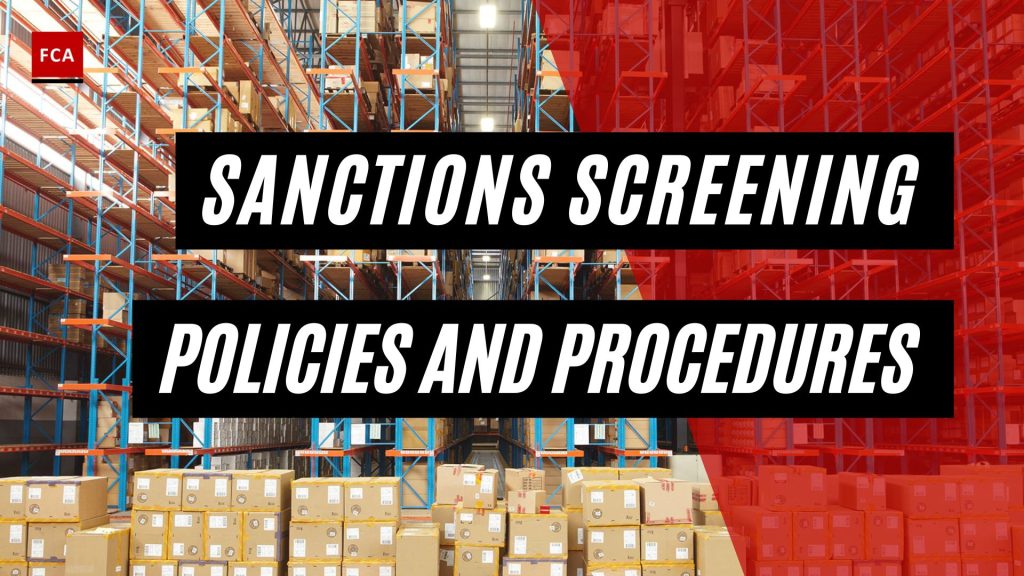The sanctions screening policies and procedures are necessary to be developed and implemented to prevent the occurrence of sanctions risks or non-compliances. The sanctions compliance program comprises different interrelated components that together form a set of rules and principles for the board and management, to prevent the occurrence of sanctions risks and non-compliances.
Sanctions Screening Policies and Procedures
The broader components of the sanction compliance program include:
- Strong compliance culture and tone from the top
- Development of sanctions compliance policies, and procedures
- The hiring of a dedicated Sanction Compliance Officer
- Performance of risk assessment
- Education and training of employees
The obligation within to prevent financial crime by management and all employees, the executive leadership, and the members of governance are required to develop and implement the relevant sanctions compliance policies, and procedures.

Sanctions compliance policies serve as a broader compliance principal. The application of policies, procedures, and controls helps in the prevention of sanctions risks and ensures that regulatory requirements are complied with by the management and employees.
Sanctions compliance policies, procedures, and controls are required to be appropriately defined by the Management and reviewed by the Board of Directors. Board approves the sanctions policies and requires an understanding of the structure, complexity of products and services, customers jurisdictions, and other operational aspects. These are required to be understood because sanctions risks also relate to these broader factors.
Sanctions policies, procedures, and controls are developed based on the risk-based approach, to prioritize the risks and apply the relevant sanctions-related compliance controls, including:
(1) Establishing requirements and designing controls based on demonstrated ability to identify and mitigate the specific sanctions risks, faced by the organization.
(2) Providing useful information to relevant competent authorities, as prescribed by applicable regulatory requirements.
As noncompliance may be committed by anyone including the employees, customers, other stakeholders, and the general public. Criminals’ activities need to be identified, through sanctions screening.

Final Thoughts
Sanctions compliance policies and procedures emphasize zero tolerance for sanctions-related regulatory non-compliances. Policies and procedures require the performance of regular and periodic sanctions screening of customers, suppliers, employees, contractors, or other third parties. Sanction screening procedures are also performed on the transactions, especially the high-risk category transactions, that could be related to financial crime.








